
Sketchbook: The Launch of The Metropolitan Review
My attempt to put words together about the putting together of words. Also, some drawings.
January 31st, 2025
New York, NY
The thing about being at a literary magazine launch in 2025 is that it feels both wildly anachronistic and somehow right on time, like finding a perfectly preserved speakeasy just when you've gotten tired of craft cocktails served in Mason jars. In an era when peoples’ attention spans are shrinking to the size of Trump’s pinky, it seems optimistic to be investing in something that requires people to read more than nine words before switching tabs.
And yet, on Friday night in Murray Hill, while finance bros in vests were doing Fireball shots at street level, I found myself 23 floors up, perched in the back of a dimly lit art deco apartment eavesdrawing the launch party for
, a new publication determined to prove that literature isn't dead, it's just been forced to read too many celebrity BookTok picks. (Please tell me you haven’t switched tabs already.)The founders—
, , and —have taken the stance that perhaps, just perhaps, we shouldn't let algorithms and marketing departments decide the future of literature. That what is needed is a literary Special Forces unit - dropping into the culture to rescue overlooked masterpieces while taking precisely aimed shots at overhyped mediocrity. They’re honest brokers, telling you plainly whether the engineered hype offers a semblance of truth or if it’s all dross dressed up in superlatives.Here is a group of writers and editors who have looked at the wasteland of modern criticism and decided to plant a flag. They aren’t just starting a magazine; they’re staging an intervention for American letters. The Metropolitan Review isn’t trying to be the next New Yorker; they’re trying to be the first whatever-comes-next.
Their plan is refreshingly simple: launch both a Substack and a website, then culminate in a print edition, as if to say, "Yes, we believe in the power of digital, but also in tangible things you can tear out and pin above your desk. And possibly throw across a room." The Substack element feels particularly important - In a world where most traditional publications treat their online presence like a necessary evil, here was one treating digital spaces as an essential frontier for good writing.
As someone whose primary contribution to the written word has been drawing pictures of people who write words, I felt like a proper interloper. I’d somehow infiltrated an exclusive society of New Yorkers who have strong opinions about Oxford commas. Adults who actually know how to string words together in a way that wouldn’t make Strunk & White turn in their graves. (I assume they share a burial plot).
Early in the evening, I spied
, New York's finest chronicler of urban absurdity and newly minted Editorial Board Member. We talked about the venture with more than a hint of promise (rare in these times) as we took in the Managing Editor’s midtown view with envy and awe.The drinks began flowing as guests poured out of the elevator and took their seats in the living room, artfully littered with galleys and antiques. Between sketches, I overheard fragments of conversation that sounded like deleted scenes from a Whit Stillman film: "But have you read their Substack about the death of the novel?" — "Only the footnotes, which were frankly where the real argument was happening..." — "I think we can all agree the real tragedy is what they did to the Oxford University Press logo...unfathomably bad."
I noticed a tall man to my right talking in a small group with "Serious Literary Face" —that very specific expression people get when they're trying to look like they're pondering Proust while actually composing an angry email in their head. As I finished up the sketch and squinted over my glasses, I realised it was
, the Deputy Editor of Air Mail.Sidenote: Ash is the one who penned that excellent write-up of our beloved MAD exhibition up in Stockbridge, MA. If you want, you can see some of my cartoons published in Air Mail right here.
I drew faster, trying to capture what felt like watching a literary revolution form in real-time. Though, given my artistic abilities after a couple of cabernets, future historians will probably mistake these sketches for enthusiastic coffee stains.
New York’s tallest photographer, Nick Dove (@ManAboveTown) floated around the room snapping candids from cruising altitude. I couldn’t help but sketch him in all his towering glory. In return, he managed to snap me in a rare moment where I wasn’t spilling something on myself.
From my armchair bunker in the back corner, I watched as the founders calmed the crowd and laid out their manifesto with the kind of clarity that makes you realise just how much fog we've been peering through. Both Bahet and Barkan stated the impassioned and measured case for this new publication.
Barkan is one of those journalists who can speak off the cuff with that sort of Hitchens-esque easy eloquence. He sounds like he’s reading off a page of tightly edited copy, then you look up and realise the clever bastard’s winging it. He has a book out this year and his own Substack, with tens of thousands of loyal readers, which is well worth subscribing to.
He talked of rebuilding criticism from the ground up:
“Traditional outlets have cut their book review sections, their Arts sections. You don’t get that same robust arts coverage you used to. You don’t see as much engagement with cinema, with streaming TV even, music, visual arts, and so on. So, there’s this real gap we felt that we want to engage with.”
“We want to do two things—and this is something actually T.S. Eliot said, which really resonated with all of us—that a magazine has two functions: One is to engage and grapple with the well-known artists of our era. And certainly, in The Metropolitan Review, we have reviewers engaging with our leading writers today. Something I’m very proud of is that we have fearless criticism. You see a lot of groupthink in criticism today. You see a lot of writers who don’t really say what they think, and we don’t do that.
The second function of the magazine, literary journal, is to find new things—to discover, to champion. That’s something we’re also very excited about. You see so many very talented writers, artists, filmmakers, and so on who aren’t getting recognized as they should because the mainstream culture, these institutions, they’ve atrophied, they’ve ossified. They’re not doing what they’re supposed to, they’re not uplifting, they’re not finding new voices, they’re not bringing people up, they’re not nurturing careers like they should. And we, as The Metropolitan Review, we can’t do all of that by ourselves. But, you know, we were like, you know what, we should try to do something.
He concluded,
, , , , & each got up to read a short excerpt of their own— offerings that spanned everything from classic literature to Joker: Folie à Deux. I sketched each reader as they got up and filled the room with hope that literary criticism has a decent shot at survival.“In addition to writing reviews and essays of things coming out that people have all heard of—nothing wrong with that—we also want to find smaller books, self-published books. Some of the best fiction I read last year was self-published.
’s great success is in self-publication. What is happening now, this real flourishing of new writing and culture on the internet, has come through Substack.
As the evening wore on, the apartment took on the warm glow of conspiracy —not the kind involving lizard people or flat earth theories, but the kind where smart people decide to do something slightly insane and completely necessary.
I left that night with ink-stained fingers and the distinct feeling I'd documented something important, even if my drawings made it look more like I'd witnessed several people having simultaneous petit mals. The Metropolitan Review was launching itself into the cultural conversation, and I couldn't help but feel optimistic and—tangentially—part of something new and exciting.
What our culture needs isn't another hot-take factory or AI content mill but exactly this: a group of people crazy enough to believe that good writing and criticism still matter.
TMP is a 501c3 and slightly different from the majority of Substacks in that they pay all of their writers at market rates. They strongly believe that this is vital — above all, to help acknowledge many of the talented writers emerging in this space — but, obviously, it adds up…


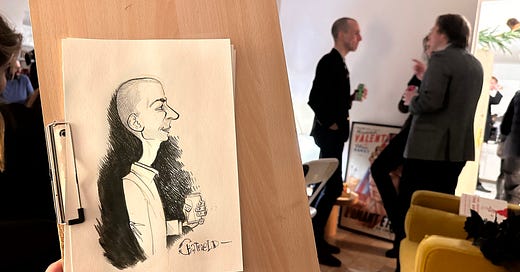





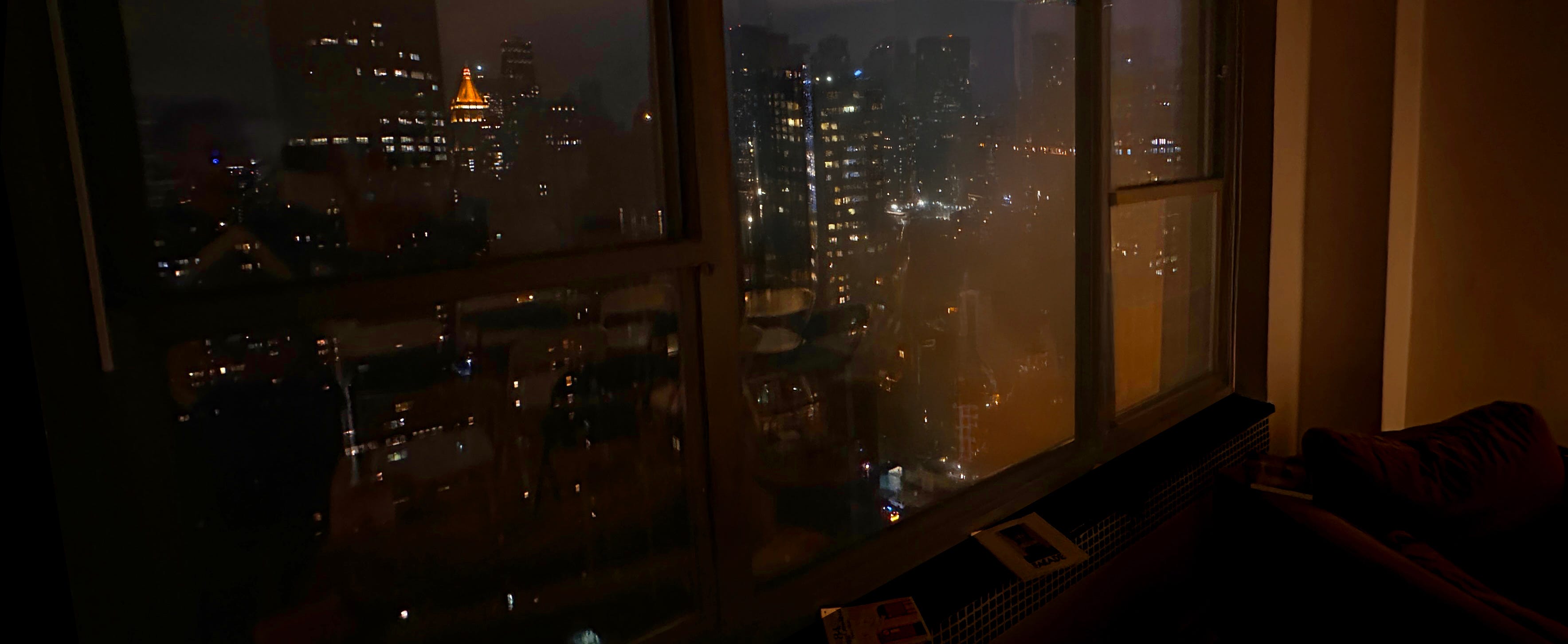
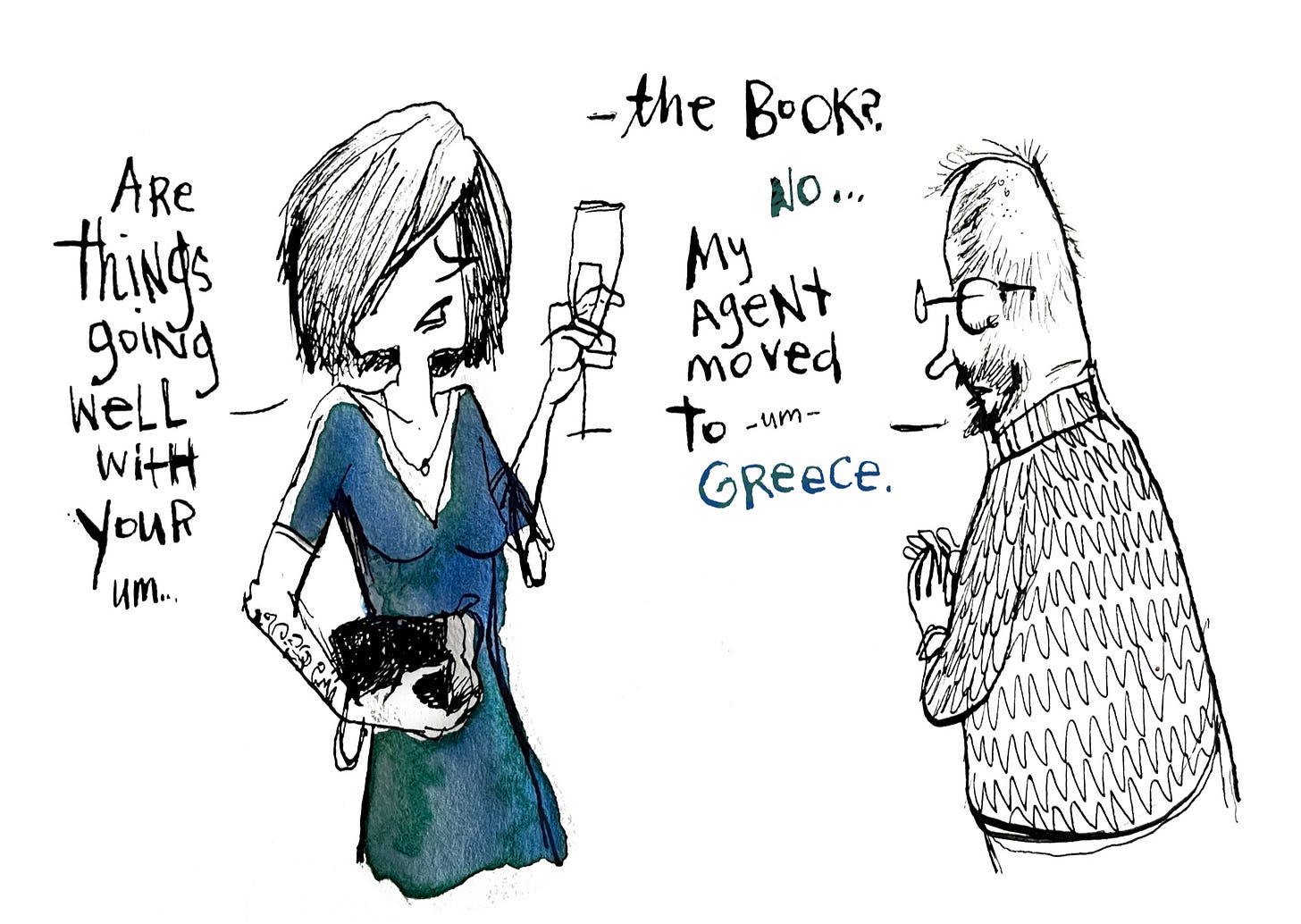

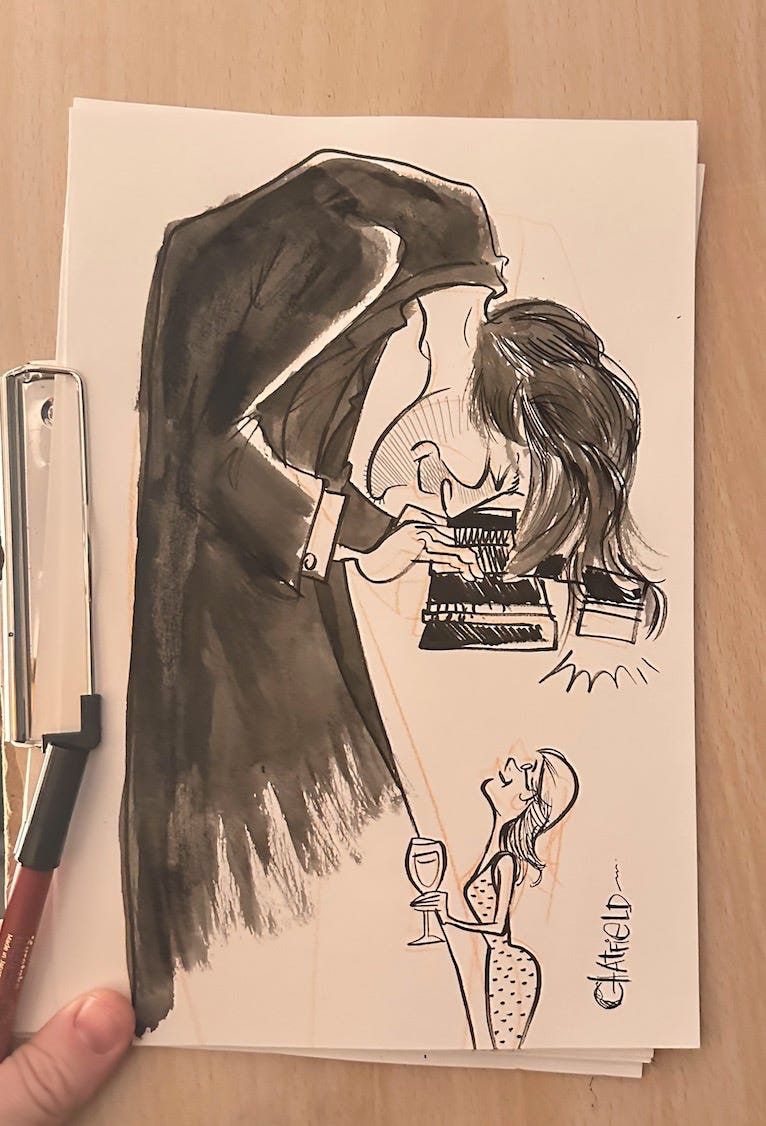
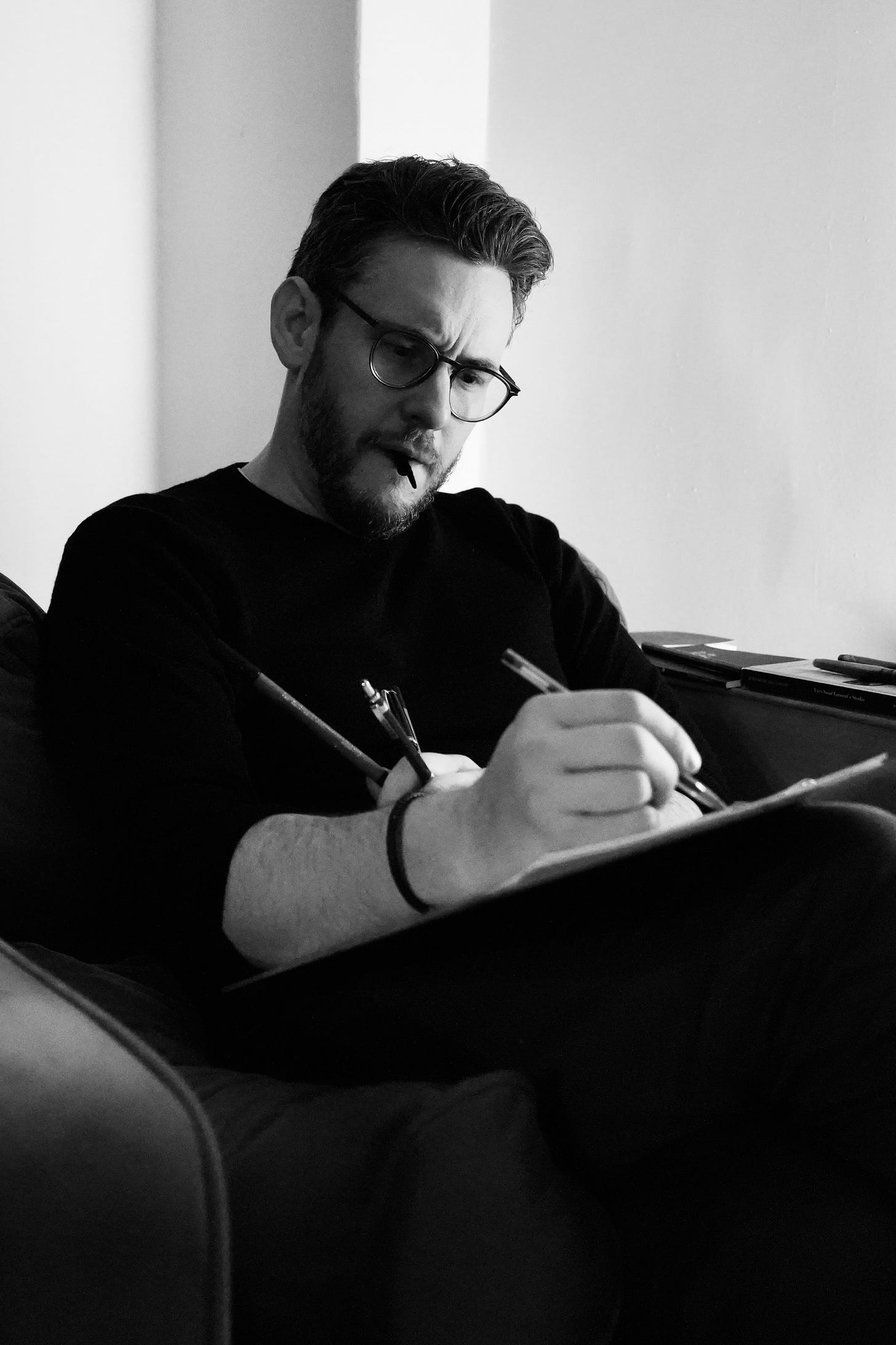
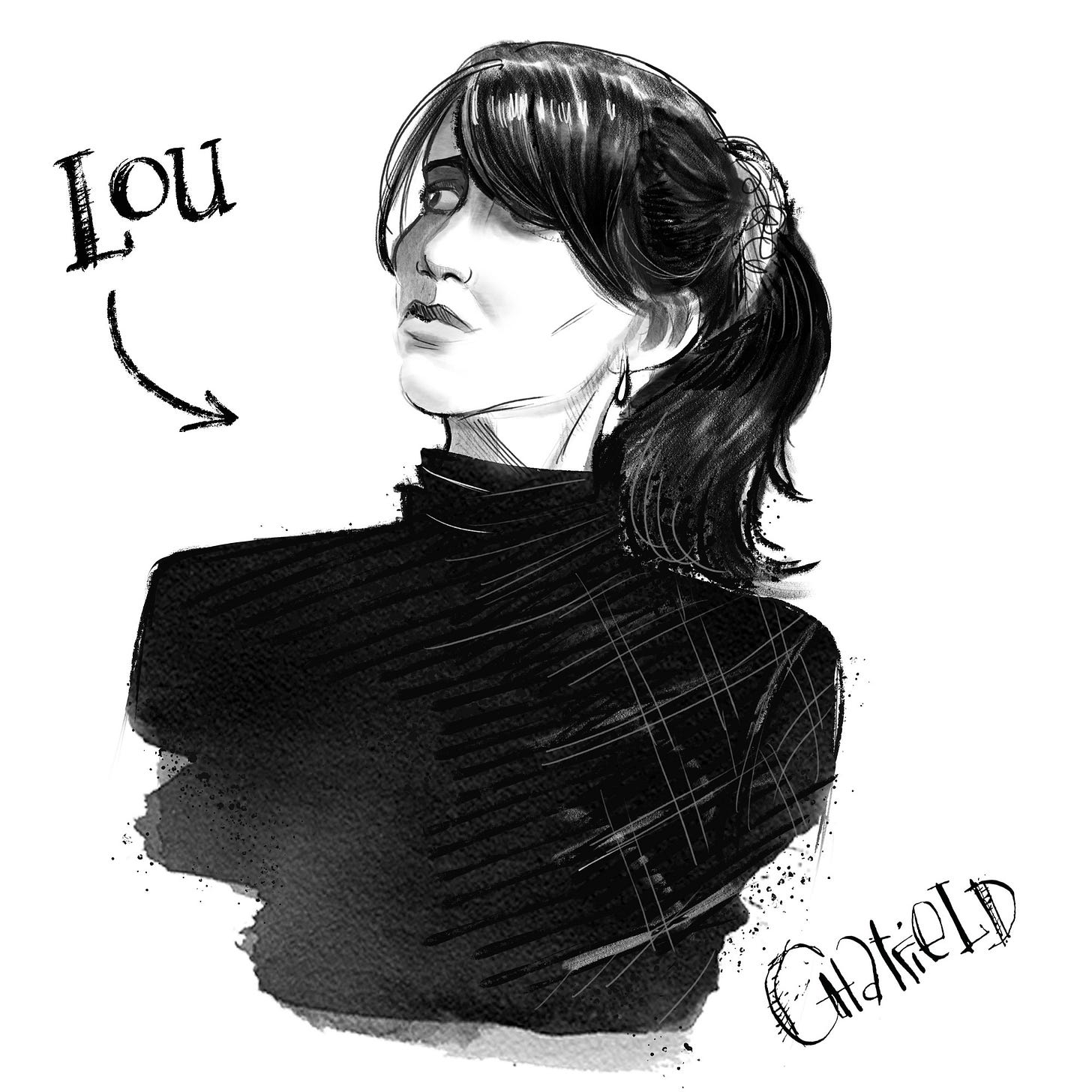
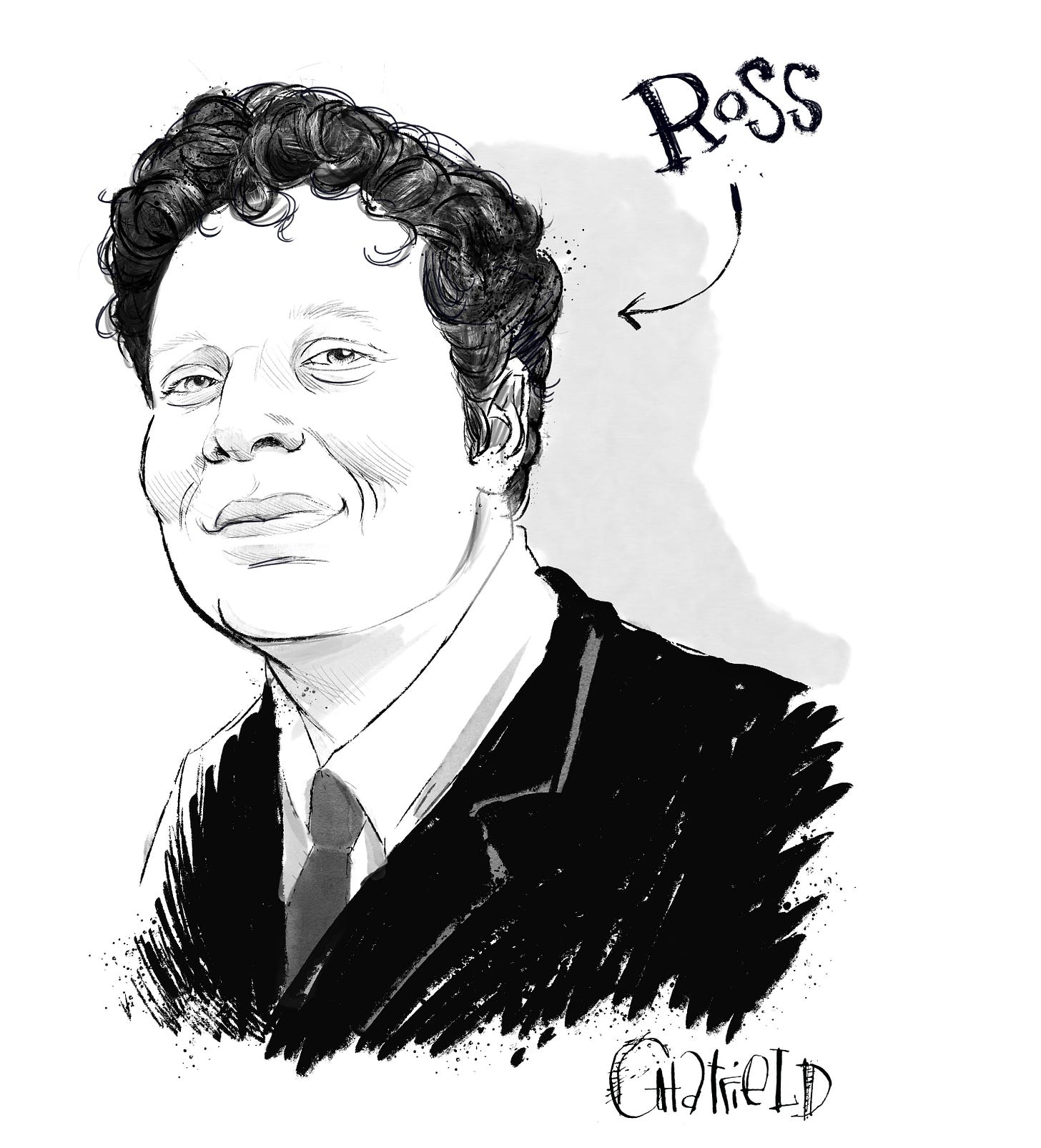
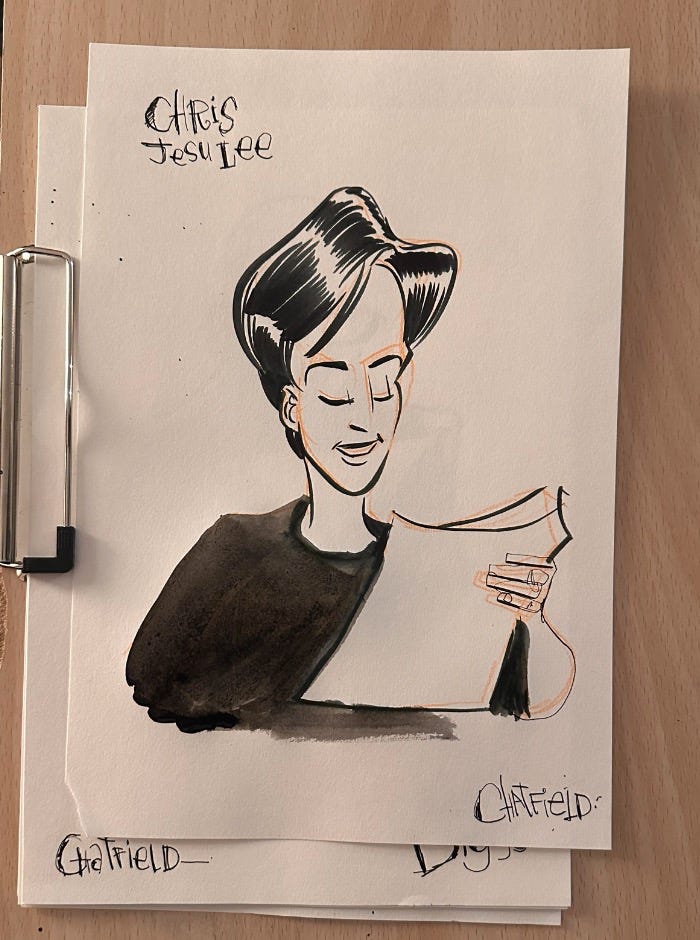
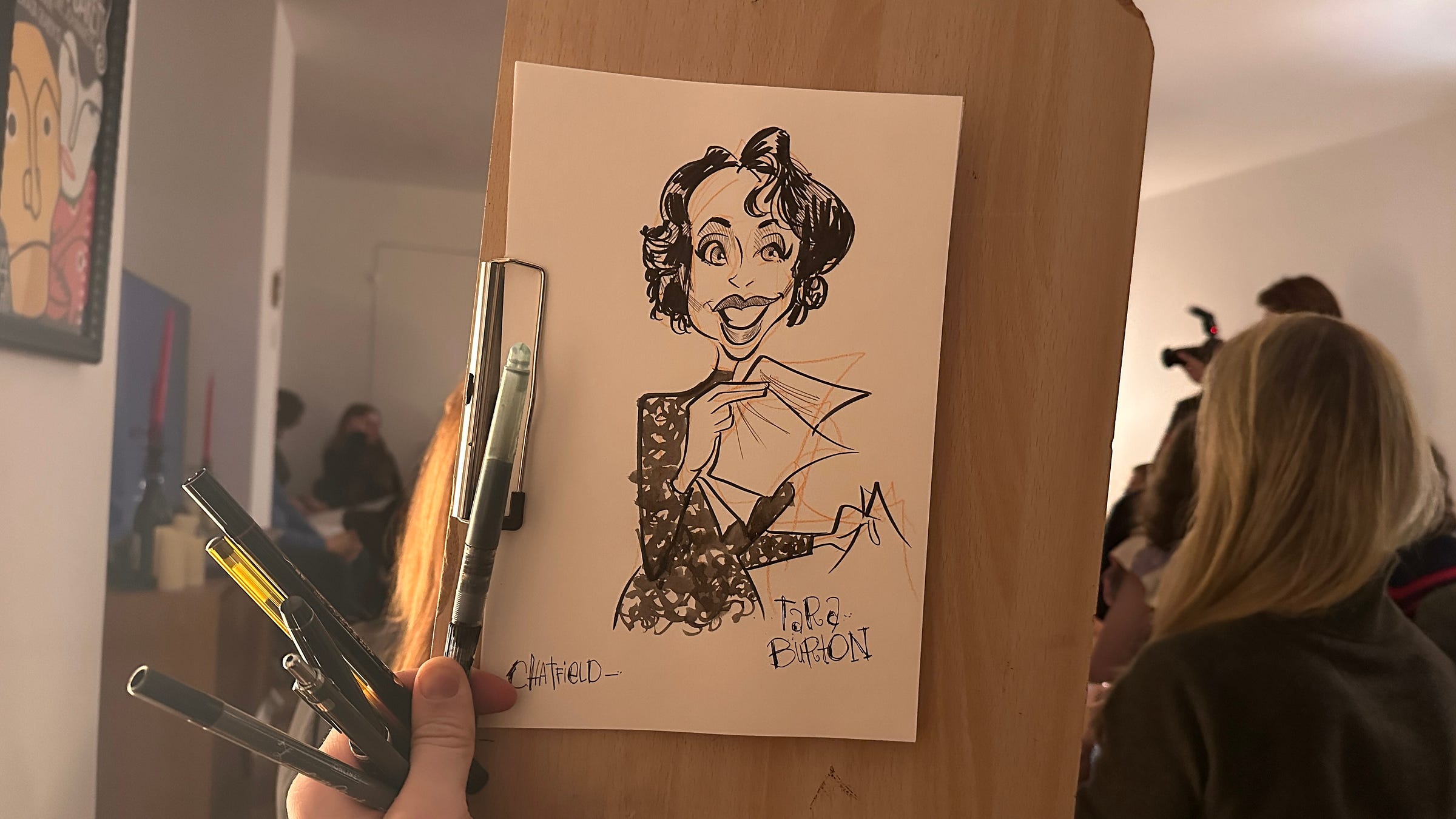









These are amazing!
It was such a fun night and so fun to read your account, Jason. And I love your sketch of Ross in particular!